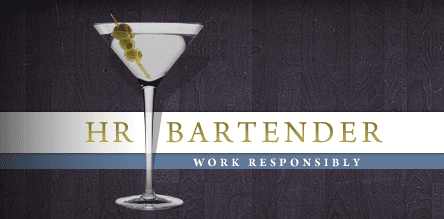
Compare Providers
Download our outplacement comparison sheet
Request Pricing
Compare our rates to other providers
We are so excited to sit down with Shelly Azen to talk about HR and business leadership. With over 25 years of experience in various HR leadership roles, Shelly founded un-HR LLC to provide HR consulting services that challenge the status quo and deliver value-added solutions to clients across different industries and sectors. She is a certified Senior Professional in Human Resources (SPHR®) and a certified Women’s Owned Business by WBENC. Un-HR was a Philadelphia100 fastest growing company in 2023.
Shelly’s expertise and passion is in helping organizations in “people chaos” and making HR matter to the business. She is known for her collaborative, direct, results-driven approach. Her experiences include successful work in more than 20 acquisitions, reducing HR operational expenses while increasing employee engagement and retention, implementing metrics and measurements of performance, and building successful and integrated teams. In her spare time, Shelly is an avid runner, Spartan racer, and likes to help her friends and family renovate and decorate their homes.
Below is our interview with Shelly where we learn more about her background, career path, pivotal moments, and advice for the next generation of HR leaders. You can also follow and connect with Shelly on her website at un-HR.com or on LinkedIn at https://www.linkedin.com/in/shellyazen/.
Q&A with Shelly Azen from un-HR
1. Tell Us About Your Background and How You Got into HR?
Most people who know me know I’m from Pittsburgh. I grew up in what I would say is a working class family, which is really what Pittsburgh was known for. My parents were young parents. They didn’t go to college. My dad worked for 50 years at the H.J. Heinz Company, which was a massive employer in Pittsburgh for decades. He believed that education was your ticket to an easier life. No one in my family had gone to college before me. So I figured out a lot of it on my own.
I was able to graduate with a pretty nice dual major. Then I had no idea what I was going to do with a sociology and psychology degree. I worked at a grocery store that summer and a woman about a year older than me, who also had a sociology and psychology degree, brought a little pamphlet to me at work one day. It was about a graduate program that she was in for a master’s degree in Human Resources. That was the program I enrolled in.
I can particularly remember. I was in graduate school, still trying to figure out what I wanted to do. As I mentioned, my dad worked at Heinz. It was a unionized factory. He had me talk to the head of HR, who tried to talk me out of going into HR. He said, “It is thankless and no one likes you and there’s not a lot of smart people that do it. So you probably shouldn’t do it. It’s not a great career. It’s not a fun career.” And I don’t know why I ignored him. I just thought, “Well, I like it and I find it really interesting.”
I started working for this small business as a recruiter and office manager. They knew I was in graduate school, so they allowed me to sit in on union negotiations and grievance meetings. I was in charge of workers comp. I was able to do all the recruiting there. So this little business owner gave me all the opportunities to hone my skills of the things I was learning at night in graduate school. And I liked it. So I just continued down that path. For whatever reason, I doubled down on, “I like the work that I’m doing, and thank you for your opinion, but I’m gonna keep going.”
If you’re looking for similar clarity in your career, click below to learn about our Careerminds leadership coaching and outplacement services and discover how we can help you identify the path that’s right for you.
2. What Was a Memorable Experience That Shaped Where You Are Now?
I worked at a healthcare company and I speak very fondly about that experience. It was the best and toughest job I’ve ever had. I like to say that I think I’m pretty good at understanding business. I just happen to be better at the HR overlay in terms of how to make that business successful. In those almost seven years at that healthcare company, I was really given the leverage and the rope to make that job my own and make our business successful through the lens of what I did. As an example, we did 13 or 14 acquisitions in my almost seven years working there.
As I look back, that was really the opportunity where I could make that job my own. There wasn’t a path. It was a newly created role for an HR professional to come in and support the business. The ability to do what it took to get the job done versus being bucketed into, “HR only does this at companies.” I think that’s where I got my confidence.
I remember being extremely sad when I gave my resignation. But I knew it was time for me to go try something new. And had I not worked at that company, I don’t think I’d be sitting here today, almost seven years into running my own business.
3. What HR Challenges or Issues Have You Seen in Your Experience?
I had two roles after that healthcare run before starting my own business. They both needed someone who could fix what I call a broken HR function. So how do you take it from a cost center to a value center? There are always costs, payroll benefits, workers’ comp insurance, etc. There’s always a cost to having an HR function, but the work that the HR team does should add value in other ways: human capital, succession planning, business growth, new markets, etc.
I believe both of those organizations wanted that. I just don’t think I was the right person to do it. I felt very thwarted and that I couldn’t really try to make happen what I thought I was being hired to do. I felt like I was always being quieted and it was very, very challenging. So I remember leaving that first job, going to the second, and thinking, “I don’t wanna make that mistake.” I wanted to go find an employer that values someone who thinks about business that just happens to be good at the HR stuff, not go find a good HR leader.
4. How Did You Decide to Start Your Own Company in HR?
What I learned from both of those experiences was to go back to the way I felt when I worked at that healthcare company. That was my barometer of what a great employer-employee relationship can look like. At the time, I probably had 14 or 15 years left to work. I wanted to have that same mission, and value, and purpose, and personal and professional growth opportunities, and to work with some really interesting, smart people.
At that second job, our parent company spun off our business and all but two executives were let go, including myself. So I had an opportunity to have [Careerminds] outplacement assistance. I had a phenomenal outplacement coach. It’s sort of work therapy. She would say, “Start from the beginning and just tell me about your career.” Then at the end of the third session, she said, “Okay what are you going to do next?” I thought, I’m just going to Google the best places to work. And as I found in the Philadelphia market, they were what I would interpret as very large, bureaucratic organizations.
My coach said, “Okay, let’s assume you get the job. What are you gonna do on Monday at lunchtime? You’re gonna hate it there. I listened to you talk for three sessions on what you’ve done in your career and you use different words, but what you said to me was you fix things that were broken. Shelly, that’s what consultants do.” I remember thinking, you’re right. I’m just going to go take a run at it. And I remember never being afraid. I had great people along the way who gave me bits of advice. And I just started.
So the outplacement coach was great. I was able to verbalize what I really wanted out of work going forward, whatever that looked like. She really helped me get comfortable with how I could talk about it and then how I started to look for clients.
5. What Is an Important Motivation for You to Work in This Field?
People used to say to me, “You don’t talk like an HR person.” What I came to learn, as I look back, is that I spoke the language of the business. I would always hang out with the head of operations and be like, “Can I ride along with you today?”
Earlier in my career, I worked at a company that had a warehouse and distribution center. I wanted to work shifts in the warehouse so I understood how our company worked, right? He would look at me and say, “What are you doing out here?” And I would say, “I don’t know what happens out here. How am I supposed to be good at my job if I don’t know what happens in the warehouse and how the product gets to the truck?”
No one told me to do that. I just thought, if I don’t know what happens out in this warehouse, I don’t know how to do a good job. Making sure to purchase the right benefits for the employees and making sure I understood how to recruit people the right way. That just seemed very natural to me. Sort of undo what people thought HR was.
6. What Advice Would You Give to Other Aspiring HR Leaders?
I get calls from people a lot who say, “Can I pick your brain? I’m thinking about being a consultant. What do you think?” I always say to people, “Just go after what you’re good at.” There’s a director in Hollywood, Ava DuVernay. I saw her speak once and she said, “When you’re in your own lane, there is no traffic.”
You and I could both be HR consultants. You could be really good at something that I don’t like to do, and I can be really good at something that you don’t like to do. We both can still have a lot of abundant work and we can maybe share clients. You can work on one aspect that I’m not good at, and I can work on the other. So be really, really good at what you do. Talk about how you’re good at what you do, go find those clients, and just be comfortable with that.
Don’t worry about what everyone else is doing in your space. I fell into that trap early on. I’d see other business owners—particularly HR consultants—posting on LinkedIn about what they’re doing. And I would think, should I be doing that? Should I go to that meeting? It doesn’t matter. That works for them. Do what works for you, and continue to hone and be good at what you’re really good at, and then sell that to your clients. You’ll find a market for who needs that.
The other thing I would say is I am not embarrassed about my success. I’m proud of what I’ve accomplished. I’m not perfect. I make mistakes all the time. But I’m proud of what I’ve accomplished and I’m not embarrassed to speak about it. You can talk about yourself in a way that gives a potential client comfort to know that you are an expert in that space.
7. What Skills or Experience Do You Think Will Be Essential for HR Leaders?
One thing that differentiates a person who comes from corporate to consulting is that I’ve had that job. I started at the bottom and I worked my way up. But for 27 years, I worked in an HR department inside a company. A lot of HR consultants can’t say that. I’m sure they’re very talented and successful, but what differentiates me from those HR consultants is that I’ve had that job. I’ve had to sit in front of board members, and the CEO, and employees, and my HR peers at a company, understanding the day-in and day-out role of an HR executive.
Consultants who haven’t had that job don’t know what it’s like. So I think my experience having had that job for 27 years comes through. I know what it’s like to restructure benefits. I know what it’s like to implement an HR system and make sure no one’s paycheck can be wrong. I feel that pain as a former head of HR and, as an HR consultant, I can talk about those experiences. I understand that pain and I’ll make sure it doesn’t happen.
I also like to think that I had HR add value to a business, other than just being a call center for a variety of ways. As I mentioned earlier, people will say to me, “You don’t talk like an HR person.” I’m unlike your typical HR person, unlike what you know about HR, unlike the results you typically have gotten from HR. Meaning sometimes you have to do the opposite of what you’re used to HR doing to make it more successful or hone the skill set.
Thanks for Reading All About Shelly Azen!
We loved getting to work with her, and you would too. Make sure to reach out to her with the contact information listed above.
If you’re interested in learning more about our Careerminds outplacement services and how we can help your aspiring HR and business leaders find their own fulfilling career paths, click below to speak with our experts and see if Careerminds is the right partner for your organization.
In need of outplacement assistance?
At Careerminds, we care about people first. That’s why we offer personalized talent management solutions for every level at lower costs, globally.



